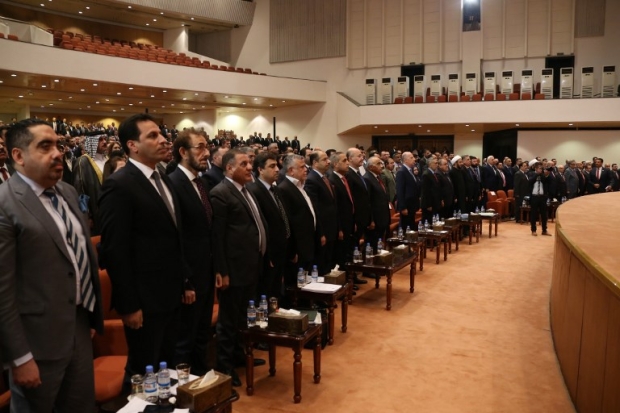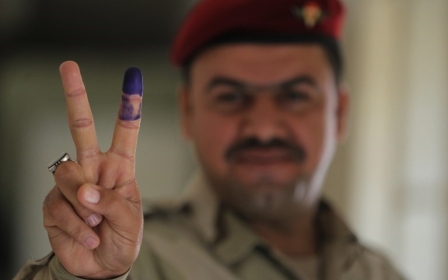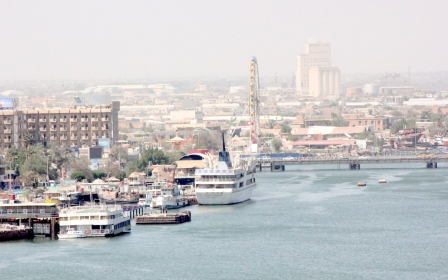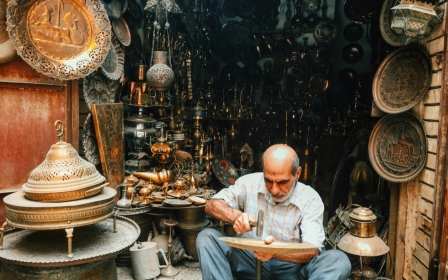Will Iraq end up opting for another strongman?
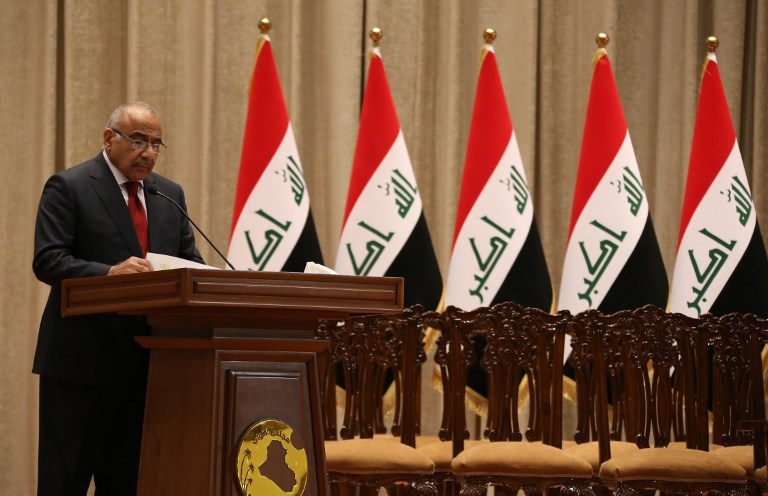
Months before the first American troops arrived in Baghdad to oust Saddam Hussein, Iraqi opposition groups in exile had already agreed on a post-war parliamentary government.
Years of authoritarian rule and the persecution of religious, ethnic and political groups had fuelled so much mistrust that none of the factions would ever endorse a presidential system without checks and balances. Two years after the war began, in January 2005, elections were held for the National Assembly, with Shia parties garnering the highest number of votes, followed by Kurds. Sunnis mostly boycotted the vote.
More than a decade has passed since Iraq embarked upon its democratic experiment. That period has seen significant instability from separate Sunni and Shia insurgencies, sectarian violence, al-Qaeda-backed terrorism, and the rise and fall of the Islamic State (IS) group. Save for a period of relative calm between 2008 and 2013, the country has been in near-continuous conflict since 2003, resulting in half a million Iraqis dead and millions internally displaced.
Calls for change
The country is rife with corruption and bureaucratic inertia. Basic services have yet to return to pre-war levels. Throughout the country, the main question is: "How can a country as rich as Iraq be as poor as Iraq?" Unless this question can be answered by and through the parliamentary system, there will be calls for alternative governance arrangements, such as a centralised presidential system.
New MEE newsletter: Jerusalem Dispatch
Sign up to get the latest insights and analysis on Israel-Palestine, alongside Turkey Unpacked and other MEE newsletters
Proponents of such change believe that the parliamentary system is marred by corruption and intramural squabbles over power. The system, they argue, assigns power to factions whose agendas pose problems for several international and regional players, among them the US, Turkey and Arab countries. The current system allows external powers to interfere and exploit these divisions, further weakening governance.
For Gulf Arab neighbours, particularly Saudi Arabia and the UAE, a centralised Iraqi government in the hands of parties heavily influenced by Iran would be a nightmare scenario
A presidential system, proponents insist, would resolve these challenges. A wise and temperate "strongman" would solve the problems of corruption, bureaucratic stasis, basic services, insecurity, and the "tyranny of the majority". The strongman solution is not unique to Iraq nor to the region; a pattern of such movements seizing power through insurgencies, military coups or corrupted elections is a worldwide phenomenon.
Opponents fear that a presidential system would only benefit Iraq’s majority Shia population. Although statistics are fiercely disputed, this group makes up roughly 64 to 69 percent of Iraq’s population. Sunni Arabs and Kurds would find it hard to accept a Shia president who either favoured a single sect or answered to outside countries.
For non-Shia groups, the current quota system within parliament assures them a voice and an opportunity to safeguard their rights and interests - particularly the constitutionally recognised minority groups, such as Turkmen.
Legal challenges
Even a consensus towards moving to a presidential system, however, would present significant legal challenges, including the need for an amendment to the Iraqi constitution. Altering the constitution, as many legal specialists have pointed out, would pave the way for further amendments, such as those demanded by Kurds vis-a-vis Kirkuk and independence.
Yet calls for this change cause some trepidation among Iraq watchers, especially those concerned about Iran’s growing influence in Iraq. For Gulf Arab neighbours, particularly Saudi Arabia and the UAE, centralised Iraqi government in the hands of parties heavily influenced by Iran would be a nightmare scenario.
For Turkey, this would be viewed as an opportunity for Kurds to renew their bid for independence as a condition for accepting a presidential system in Baghdad.
After more than a decade under a parliamentary system, calls for moving towards a centralised model are becoming louder and more frequent. The last few months have seen deadly protests rock Basra and Baghdad over the lack of basic services and a devastating water crisis. Pro-Iran factions within Iraq’s Popular Mobilisation Forces have capitalised on the widespread malaise by pushing the idea of a presidential system as the start of a solution to the country’s many problems.
Sheikh Qais al-Khazali, head of the Asaib Ahl al-Haq militia, called for a presidential system of governance in August. In a tweet, he said everyone should "cooperate in changing the regime to a presidential or semi-presidential system that would save the country". Former Prime Minister Nouri al-Maliki has also backed this change on several occasions.
Nonetheless, many view these calls as the wrong solution, warning that moving to a centralised system is a Faustian bargain whereby people will forfeit rights and privileges as payment for security, stability and basic services.
Building trust
According to Diaa al-Asadi, the political representative of Shia cleric and political leader Muqtada al-Sadr, the call for a presidential system has resulted from people’s frustration over governmental corruption and Iraq’s lack of basic services.
"The type of political system is not the real issue. Saddam’s regime was a totalitarian presidential regime, and people hated it and wanted to change it,” he told MEE. "It is true that some political systems, when they do not have checks and balances, can provide a thriving environment [for] failure, corruption, and dysfunctionality. However, any system the majority of people vote for should be the system embraced by the government. This is how democracy works."
Asadi added: “I think some Shia still prefer the parliamentary system, and, oddly enough, some Sunnis call for a presidential system. But until Iraqis from different components build mutual trust and start afresh without invoking the past, no system can prove feasible."
While there are no indications of an imminent change in Iraq’s system of government, the growing trust deficit within the political class and the widespread failure to deliver stability and basic services are laying the groundwork for a more centralised government. It remains to be seen whether such a government would balance power with wisdom and temperance for the betterment of the people, or simply comprise Saddam 2.0.
- Tanya Goudsouzian is a Canadian journalist who has been covering the Middle East and Afghanistan for over 15 years. Follow her on Twitter @tgoudsouzian
- Dr Ahmed Rushdi is president of the House of Iraqi Expertise Foundation and foreign policy adviser to the Iraqi parliament. Follow him on Twitter @hoief
The views expressed in this article belong to the author and do not necessarily reflect the editorial policy of Middle East Eye.
Photo: Adel Abdul Mahdi, the new prime minister, addresses the Iraqi parliament on 24 October 2018 in Baghdad (AFP)
Middle East Eye delivers independent and unrivalled coverage and analysis of the Middle East, North Africa and beyond. To learn more about republishing this content and the associated fees, please fill out this form. More about MEE can be found here.


